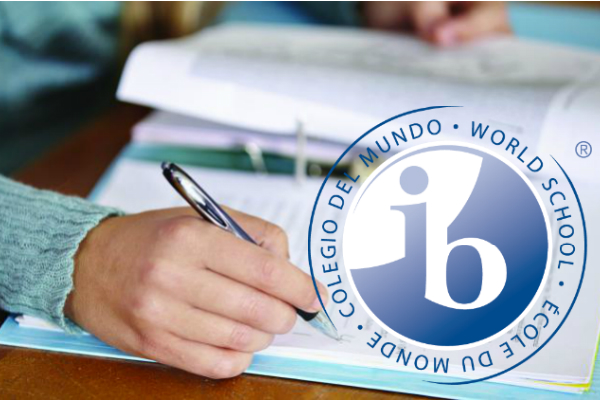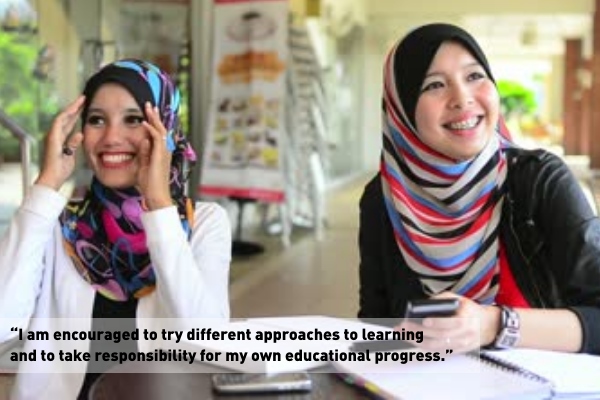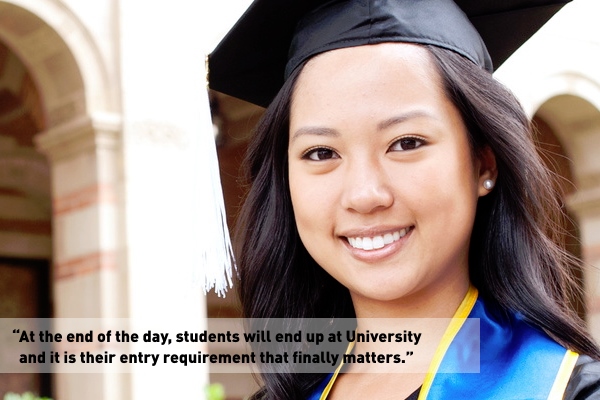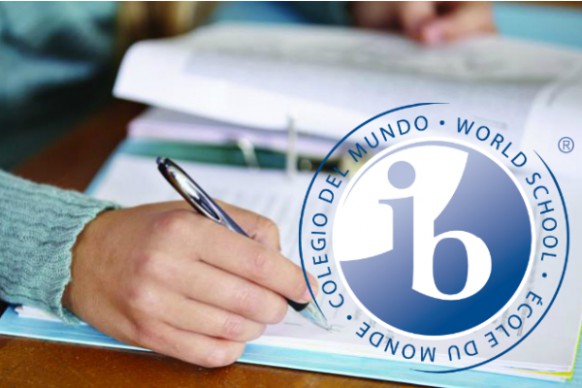Top 6 Reasons More Malaysian Students are Choosing the IB Programme
Published by SchoolAdvisor | Feb 16, 2015So why are more Malaysians going for the International Baccalaureate programme? When they can choose Matriculation, STPM, CAL, SAM, CPU and other foundation programmes?
 Find out the IB schools in Malaysia HERE: International Schools with the IB Curriculum in KL, Putrajaya & Selangor
Find out the IB schools in Malaysia HERE: International Schools with the IB Curriculum in KL, Putrajaya & Selangor
1. Students learn how to learn

IB programmes help students to ask challenging questions, think critically and develop research skills proven to help them in higher education. A special feature of the IB is TOK which is Theory of Knowledge. It is a thinking subject where students formulate questions, debate, create arguments and write arguments too. This is the subject that makes IB different to other pre-u.
Theory of Knowledge is a course designed to encourage each student to reflect on the nature of knowledge by critically examining different ways of knowing (perception, emotion, language and reason) and different kinds of knowledge (scientific, artistic, mathematical and historical).
The Creativity, Action and Service (CAS) component requires that students actively learn from the experience of doing real tasks beyond the classroom. Students can combine all three components or do activities related to each one of them separately.
It is clear that the IB programme is so much different compared to the local syllabus in Malaysia and would seem like a breath of fresh air.
2. The programme is well regulated

Only schools authorised by the International Baccalaureate Organisation (IBO) are eligible to teach the curriculum and register candidates for the examination. Gaining IB school status involves a rigorous two-year authorisation process, but it’s designed to support schools and ensure that they fully understand the nature and requirements of the programme.
Sometimes more teachers are needed, but in general schools find it challenging and rewarding. There’s a global quality control and inspection regime, involving self-inspection, on-site visits and submission of documentation to IBO headquarters.
IBO also often organizes conferences and workshops to strategically work with schools and educators, ensuring they keep up with the evolving world of education.
3. Smooth transition to tertiary education

There are 3 Malaysian universities that recognise the IB diploma for admission to their programmes:
- Universiti Malaya
- Universiti Tenaga Nasional
- International Islamic University
Other government tertiary options are MARA College Banting and MARA College Seremban. However, the range of subjects is very limited to only Malay, English, Math HL, Physics HL/Biology HL, Chem HL, Econs/Business/IT.
Students aiming for overseas education should be aware that the US universities focus more on personality and not just your grades, unlike UK universities who are 100% academic based (we hear that this trend is changing as well!).
We hear that sometimes IB students are even allowed a jump to the 2nd year bachelor degree!
4. More opportunities for sponsorship and work

IBO actively seek sponsors for their brand, making their name more recognizable worldwide. This in turn ensures that the IB qualification would ease entry for Malaysian students anywhere in the world. Many universities around the globe offer IB specific scholarships. Schools that offer the IB programme in Malaysia are also offering scholarships for their students.
The Human Resource departments in Malaysia often complain on how local graduates lack many soft skills which shows during a job interview. Universities are then pushed to train students in overcoming this lack. IB on the other hand would ensure that students are all rounder individuals.
Participation in voluntary activies as well as doing a final year project in their chosen field will provide students with the much needed early exposure to the working world, the kind of experience any potential employee would highly appreciate.
5. Not just about the paperchase

The IBO’s goal is to educate the whole person and foster responsibility. The Creativity, Action and Service (CAS) element of the IB requires that students share their energy and talents with others, beyond academic work.
A minimum of 150 hours of participation over the two years in creative, physical and service activities is required (at least 50 hours in each element). They may include things like playing a musical instrument in a group, sport, art and drama and the Duke of Edinburgh award.
It is compulsory for students to give something back to the community. IB students are encouraged to work in local charity shops, primary schools and hospitals and even take part in expeditions arpund the world. The progress is monitored through self-evaluations and a CAS co-ordinator. Seeing the world will ensure students become open-minded and appreciative of hard work.
There are no formal examinations set or marked by the IB. Instead the IB validates the grades of final-year students in schools that request this service, and issues certificates to those students who reach a required standard. This reduces the stress and on both students and teachers of the IB.
6. Flexibility and freedom

The IB programmes offer a wider range of subjects combined with the 3 core components: TOK, EE and CAS which also contains a variety of activities to choose from. Pupils research a topic independently and prepare a 4000-word essay for EE where many students select a topic from one of their higher level subject areas. A supervisor gives guidance and advice and the essay is submitted at the end of the winter term of the upper sixth.
If you can't decide which discipline you want to go to in university, IB is for you as you get to expose yourself to all type of subjects. IB offers 6 subject groups, which is language, additional language(s), the social sciences, the experimental sciences and mathematics. Students may choose either an arts subject from group 6 and a second subject from groups 1 to 5 or choose to do all six!
In IB, students study both arts and sciences with a delivery that overlaps and relates to one another. This ensures that students become multi-faceted and able to view problems from any different angle.
IB also provides freedom and flexibility to educators as teachers are required to work together across their departments to deliver the most meaningful lessons to students. This allows for more diversity of thinking in the school, in the same vein as our 1Malaysia slogan.
Compare IB with another curricula popular in Malaysia HERE: A side by side comparison between IB and IGCSE
Don’t forget to LIKE us on Facebook and receive updates and consultation on all matters related to Private and International schools in Malaysia.
Recent Articles
- The Ideal School for a Holistic, Well-Rounded Education: Maple Leaf Kingsley International School
- From GIS to Charterhouse to SOAS: Zeeshan Fatmi’s Academic Expedition
- Beaconhouse Gasing Preschool: Leading Transformation with IEYC Curriculum Introduction
- BSKL and Charterhouse Grad Scores Dream Spot at New York University
- Leannie Liew’s Journey at Cempaka International School: Pushing Boundaries and Discovering Potential







 Login with Google
Login with Google